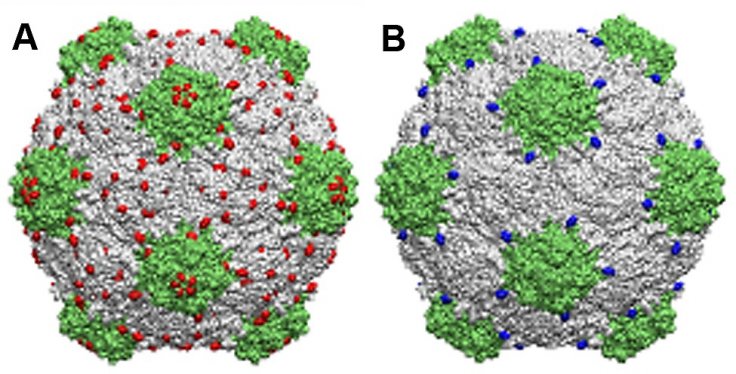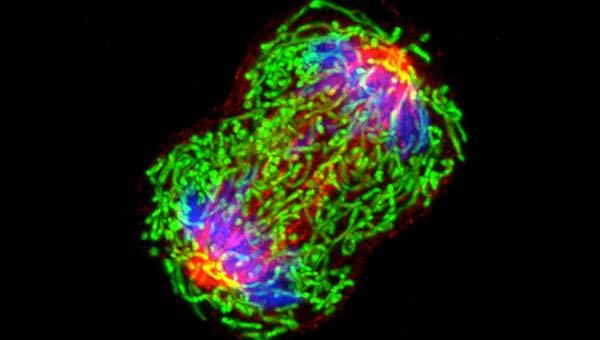Cowpea mosaic virus (CPMV) is a typical member of the genus Comovirus. Researchers believe that this virus can help to treat cancers in humans as they found promising results by injecting the virus into dog and mouse tumors.
Jack Hoopes, a veterinary radiation specialist at Dartmouth College in New Hampshire, who had spent his decades-long career treating cancer in canine with the latest experimental therapies, hopes that one day these will help to treat cancer in humans too. Recently, many of his patients have come to him with oral cancers which would kill them within a few months if left untreated and there is a high chance of reemergence even if cancer suppresses after radiation treatment.
These canines are patients in an experimental study that is conducted to explore the efficacy of a new cancer treatment based on a common plant virus—cowpea mosaic virus. It was noticed that after the treatment, several dogs had their tumors completely disappear and lived a long natural life without cancer.
Hoopes think that this treatment has the potential to be a breakthrough that could save millions of humans and canine lives. "If a treatment works in dog cancer, it has a very good chance of working, at some level, in human patients," he said.

Cowpea Mosaic Virus and Cancer Treatment
This virus doesn't replicate in mammals as it does in plants, but the researchers who developed the therapy said that it can trigger an immune response which could be playing a major role in terms of treating several types of cancers.
Immunotherapy has emerged as the most promising type of cancer treatment that is about developing the patient's own immune system to recognize the cancerous cells—that the system doesn't always do—and fight back. That is where the virus could help.
Hoopes and His Canines Patients
Hoopes injected 200 micrograms of virus-like particles, which are not live viruses—into the tumors of canines. Each canine received four doses of the viral particles over two weeks when they were under standard radiation therapy also.
In terms of boosting immunity, the CPMV has proven to be more effective than any other pathogens which researchers have tried as of now. But there is not much clarity on what makes the virus so uniquely effective. Hoopes said, "It's worked better than radiation by itself, which is a huge positive for us. The immune system is more powerful than we thought."
A similar process using genetically modified oncolytic viruses has been analyzed by researchers, but Steve Fiering, an immunologist at Dartmouth College said, "None of the oncolytic viruses have shown a very good effect in clinical trials." As of now, only three oncolytic virotherapies have been approved for cancer treatments worldwide. As per a paper, worldwide clinical trials studying oncolytic viruses for its efficacy in several cancer treatments "remains largely unknown."

However, in 2015 a paper was published in Nature Nanotechnology, in which researchers said that the cowpea mosaic virus was highly effective in treating melanoma, breast, ovarian, and colon tumor models, besides creating an immune memory in mice.
This summer the researches who developed the therapy and collaborated with Hoopes to conduct a study on dogs, received a $2.9 million grant from the National Institutes of Health (NIH) to develop a bioprinted implant to treat ovarian cancer with the viruses.
Earlier this year, the researchers also co-founded a company—Mosaic IE—to facilitate a human trial of virus-based therapy. But before that, they need to do a large-scale toxicology study and ensure safety. Fiering said, "Everything has to be very, very carefully documented and tested before you can begin clinical trials."









